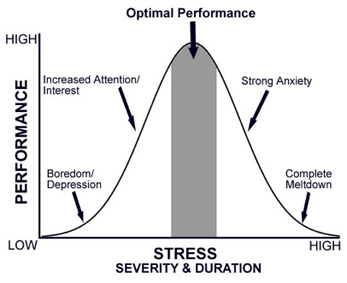 Dr. Travis Bradberry is the award-winning co-author of the No. 1 bestselling book,
“Emotional Intelligence 2.0,” and the co-founder of a company called TalentSmart,
a provider of emotional intelligence tests, emotional intelligence training and emotional
intelligence certification. He recently wrote a column on the subject of stress that
caught my eye.
Dr. Travis Bradberry is the award-winning co-author of the No. 1 bestselling book,
“Emotional Intelligence 2.0,” and the co-founder of a company called TalentSmart,
a provider of emotional intelligence tests, emotional intelligence training and emotional
intelligence certification. He recently wrote a column on the subject of stress that
caught my eye.According to Bradberry, the ability to manage your emotions and remain calm under pressure has a direct link to performance. He has conducted research with more than a million people, and found that 90 percent of top performers are skilled at managing their emotions in times of stress to remain calm and in control. That makes sense to me.
Dean Berk taught me the term aequanimitas. The term means imperturbability and was thought by Sir William Osler (a great pioneer in medical education associated with Johns Hopkins) to be the premier quality of a good physician. In his essay, “Aequanimitas,” Dr. Osler defines this concept as coolness and presence of mind under all circumstances. The term entails a certain calmness during a storm and clearness of judgment in moments of great stress.
Stress is a funny thing — too little and motivation may be lost, and too much can harm our physical and mental health. One of our medical students asked me the other day if I get stressed before giving a talk (poor fellow has had to listen to me on several occasions.) I said yes, and elaborated that our brains are programmed such that it is difficult to give a speech, for example, or to do any action until we feel at least some stress.
In fact, according to Bradberry, performance peaks under the heightened activation that comes with moderate levels of stress. If we are walking along a trail near Sweetwater and see a rattlesnake, stress serves to get us into high gear. That’s a good thing!
Below is a graphic that Bradberry produced that explains a lot about stress. (I believe the original source of this research is from the University of California, Berkeley.) It illustrates the point rather nicely, I think, about that optimum level of stress.

